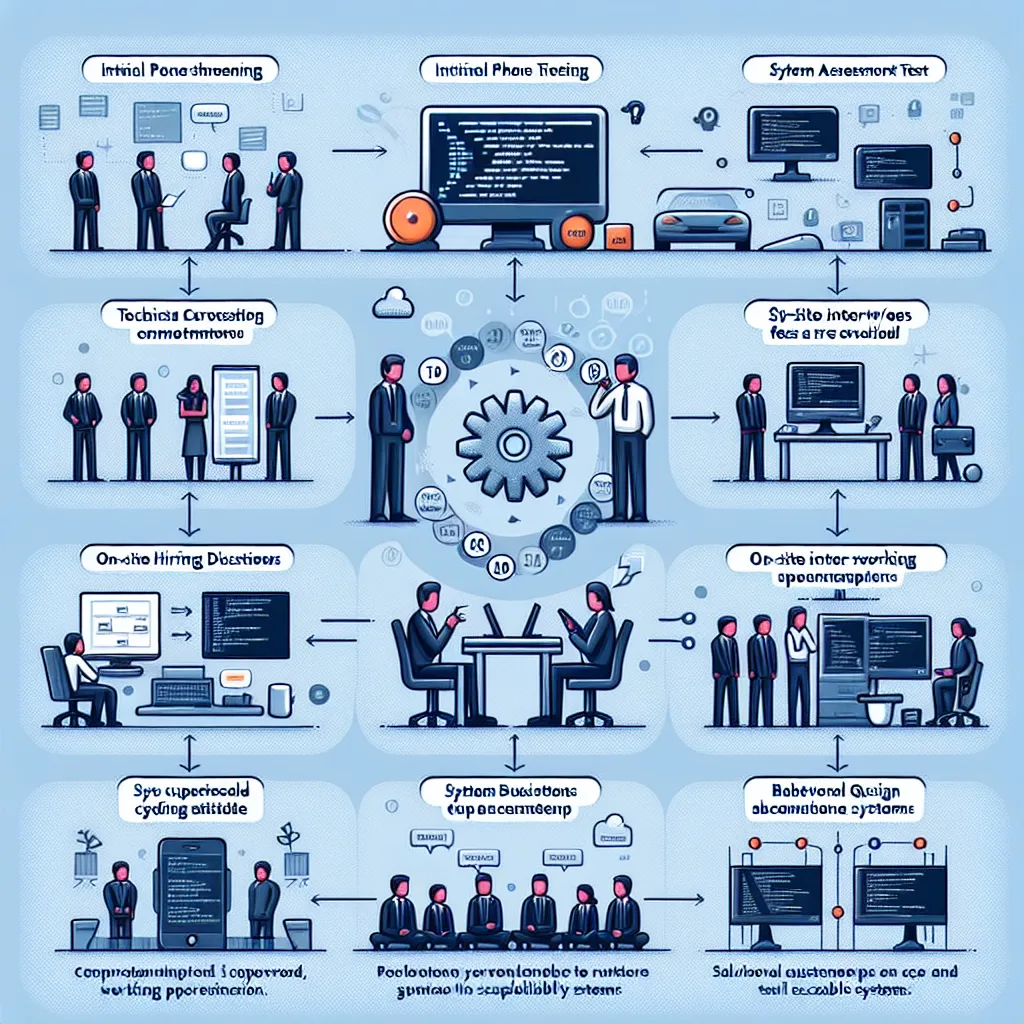Are you gearing up for a software engineer interview? Whether you’re a fresh graduate or an experienced professional, preparing for a software engineering interview can be a daunting task. This comprehensive guide will walk you through the essential steps to ace your next software engineer interview, providing valuable insights and practical tips to help you stand out from the competition.
Understanding the Software Engineer Interview Process
Before diving into the preparation strategies, it’s crucial to understand what a software engineer interview typically entails. Software engineer interviews are designed to assess your technical skills, problem-solving abilities, and cultural fit within the organization.
Common Interview Stages
- Phone or Video Screening
- Technical Assessment or Coding Challenge
- On-site Interviews (may be virtual due to COVID-19)
- System Design Discussion
- Behavioral Questions
 Software Engineer Interview Process
Software Engineer Interview Process
Preparing for Technical Questions
Technical questions form the core of most software engineer interviews. Here’s how you can prepare effectively:
1. Review Fundamental Concepts
Brush up on core computer science concepts such as:
- Data Structures (Arrays, Linked Lists, Trees, Graphs)
- Algorithms (Sorting, Searching, Dynamic Programming)
- Time and Space Complexity Analysis
- Object-Oriented Programming Principles
- Database Concepts (SQL, NoSQL)
- Operating Systems Fundamentals
2. Practice Coding Problems
Regularly solve coding problems on platforms like:
- LeetCode
- HackerRank
- CodeSignal
Focus on:
- Implementing efficient solutions
- Writing clean, readable code
- Explaining your thought process clearly
3. Mock Interviews
Participate in mock interviews to:
- Simulate real interview conditions
- Improve your communication skills
- Get feedback on your performance
You can find mock interview partners on platforms like Pramp or ask friends in the industry to help you.
Mastering System Design Questions
For mid-level to senior positions, system design questions are crucial. Here’s how to prepare:
- Study Scalable System Architectures
- Understand Distributed Systems Concepts
- Learn about Microservices and API Design
- Practice Designing Real-World Systems
Resources like “Designing Data-Intensive Applications” by Martin Kleppmann and online courses on system design can be invaluable.
Behavioral Interview Preparation
Don’t underestimate the importance of behavioral questions. Prepare for them by:
- Using the STAR Method (Situation, Task, Action, Result) to structure your responses
- Reflecting on your past experiences and projects
- Preparing examples that showcase your leadership, teamwork, and problem-solving skills
Common Mistakes to Avoid
- Neglecting to ask clarifying questions
- Jumping into coding without planning
- Not testing your code
- Failing to communicate your thought process
- Overlooking the importance of cultural fit
Follow-up Questions and Answers
Here are some common follow-up questions you might encounter in a software engineer interview, along with suggested approaches to answering them:
-
Q: How would you improve the solution you just provided?
A: Discuss potential optimizations in time or space complexity, or improvements in code readability and maintainability. -
Q: Can you explain how your solution would perform with a larger dataset?
A: Analyze the time and space complexity of your solution and discuss how it scales. -
Q: What alternative approaches did you consider for this problem?
A: Mention other algorithms or data structures you thought about, and explain why you chose your final approach. -
Q: How would you test this code in a production environment?
A: Discuss unit testing, integration testing, and potential edge cases to consider. -
Q: Can you describe a challenging technical problem you’ve faced and how you solved it?
A: Use the STAR method to structure your response, focusing on your problem-solving process and the impact of your solution.
 Software Engineer Interview Preparation
Software Engineer Interview Preparation
Conclusion
Preparing for a software engineer interview requires dedication, practice, and a structured approach. By focusing on strengthening your technical skills, enhancing your problem-solving abilities, and improving your communication, you’ll be well-equipped to tackle any interview challenge. Remember, the key is not just to showcase your knowledge but also to demonstrate your passion for software engineering and your ability to learn and grow.
For more insights on technical interviews, check out our guide on how to prepare for a technical interview. If you’re interested in other engineering disciplines, you might find our article on how to prepare for an engineering interview helpful as well.
Good luck with your preparation, and don’t forget to share your experiences or ask questions in the comments below!




